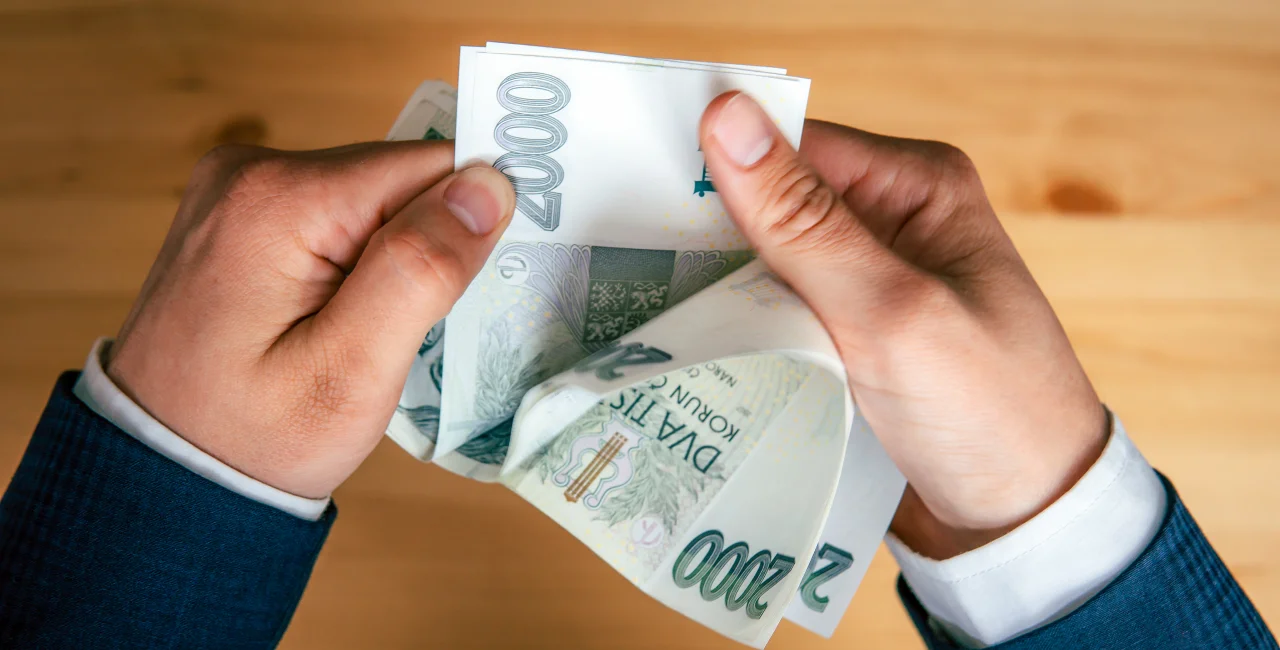If you’re working in Czechia, chances are you’ve seen a notable—and welcome—increase in your paycheck in the last 12 months. But just how much have salaries gone up by, have they outpaced inflation, and which industries have seen the biggest pay rises? Another crucial question on many people’s minds is: “Will my Czech salary continue to grow?.” Here is an outlook on the current situation, with answers to all these queries.
New data shows that, in 2024, employees nationwide got a 7-percent increase in their average gross monthly wages, with the country’s average salary now at CZK 46,165 (CZK 57,232 in Prague).
What’s even more notable is that real wages have grown for the first time in two years, surging almost 5 percent in the last 12 months. Czechia’s gender pay gap remains stark: the median wage for women is CZK 6,500 less than that for men.
Which industries saw the biggest (and smallest) rises?
Wages grew most in sectors like real estate, healthcare, and professional services. Real estate workers saw the biggest increase in the fourth quarter, with salaries rising by 16 percent compared to the previous year.
Over the course of the year, health and social care jobs saw the largest wage jump, with a 10.1 percent increase. Other strong wage gains were seen in professional, scientific, and technical activities (up 12.2 percent) and accommodation, catering, and hospitality (10.3 percent).
In contrast, wages grew the least in mining and quarrying, which saw a modest increase of just 1.2 percent. Education, public administration, and defense also experienced smaller wage increases, up 2.7 percent.
Have you received a pay rise in the last 12 months at your current job?
Who earns the most (and least)?
While average wages in the Czech Republic increased, workers in different sectors saw varying pay levels. The highest wages remain in the information and communication sector, where the average salary exceeded CZK 83,000.
On the other end, workers in accommodation, catering, and hospitality earned the least, with an average monthly salary of below CZK 28,000.
Salary amounts also depend on where you live. While the capital earns by far the most on average every month, the Karlovy Vary region sees the lowest monthly salaries—under CZK 40,000.
Are we better off than five years ago?
When it comes to wage rises, the short answer is no; analysts note that real wages have not yet fully recovered to pre-pandemic levels. Chief Economist of finance firm Cyrrus Vít Hradil told Czech Television that Czech wages, in real terms, are still 7.3 percent below the peak seen in the first half of 2020.
Czech wages currently hold approximately the same value as they did at the end of 2018.
Will salaries continue to grow?
Economists predict that real wage growth will continue in 2025, though at a smaller pace than last year. This will help to boost the Czech economy. Komerční banka analyst Jaromír Gec said that rising wages should drive household spending, which plays a key role in the country’s recovery post-pandemic.
However, analyst at audit firm PwC Dominik Kohut warns that wage growth is not happening evenly across all income groups.
UniCredit Bank economist Jiří Pour predicts that real wage growth will remain between 3 and 4 percent this year (with nominal growth at around 6 percent).
A 2024 survey by human resources firm Randstad Czech Republic found that 70 percent of employees expect a pay rise in 2025, with nearly a third anticipating an increase of about 8 percent.












 Reading time: 2 minutes
Reading time: 2 minutes 





















